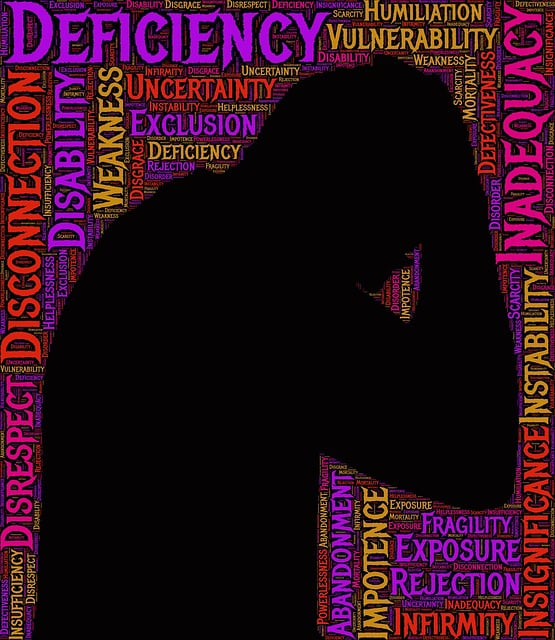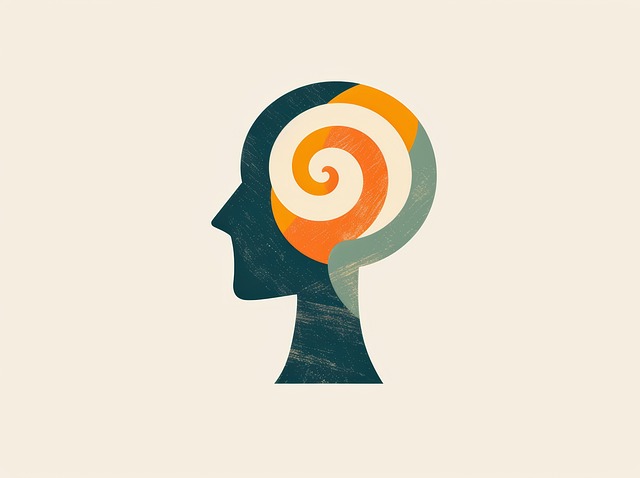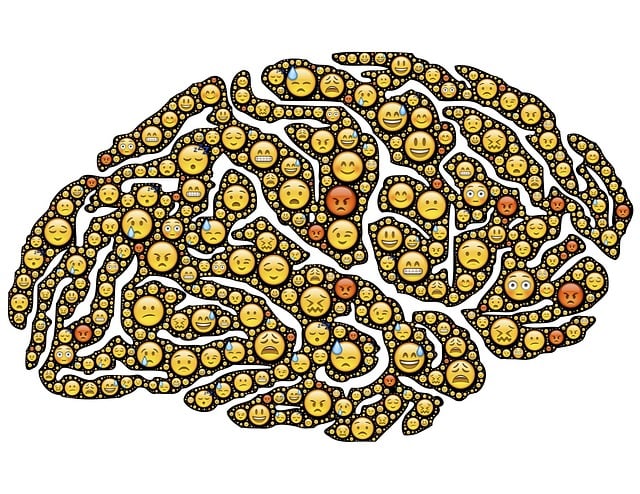Cultural competency at Wheat Ridge Chronic Illness Therapy is key to effective healthcare delivery, especially for managing chronic illnesses. Recognizing and respecting diverse backgrounds improves patient care and outcomes. The organization addresses cultural biases among providers through educational programs focusing on mindfulness, meditation, and stress reduction. These initiatives create an inclusive environment where patients receive tailored, compassionate care. Effective training involves interactive activities, case studies, and role-playing to develop cultural sensitivity, improve communication, and build empathy. By bridging cultural gaps through active listening, adapted communication styles, and culturally sensitive coping skills development, Wheat Ridge improves health outcomes and reduces mental illness stigma. Success is measured through KPIs, qualitative data, and tailored training programs based on risk assessments.
Healthcare provider cultural competency training is an essential component of high-quality patient care, especially in chronic illness management. This comprehensive guide explores the impact of cultural biases on patient interactions at Wheat Ridge Chronic Illness Therapy, highlighting the need for effective training. We delve into designing sensitivity programs, improving cross-cultural communication, and measuring success to ensure culturally competent care across diverse populations. Understanding and overcoming cultural barriers is a game-changer in healthcare, as it fosters trust and enhances therapeutic outcomes.
- Understanding Cultural Competency in Healthcare: Why It Matters for Chronic Illness Therapy
- The Impact of Cultural Biases on Patient Care at Wheat Ridge Chronic Illness Therapy
- Designing Effective Training Programs to Enhance Cultural Sensitivity
- Practical Strategies for Healthcare Providers to Improve Cross-Cultural Communication
- Measuring and Evaluating the Success of Cultural Competency Initiatives at Wheat Ridge
Understanding Cultural Competency in Healthcare: Why It Matters for Chronic Illness Therapy

Cultural competency in healthcare is a vital aspect of delivering effective treatment, especially for managing chronic illnesses. It involves recognizing and appreciating the diverse cultural backgrounds, values, and beliefs of patients, ensuring that healthcare services are sensitive and accessible to all. When it comes to chronic illness therapy, this understanding becomes even more critical. Many individuals with chronic conditions face unique challenges related to their health, often influenced by socio-cultural factors.
For instance, a patient from a different cultural background might have distinct perceptions of pain, recovery, or even the concept of health itself. A healthcare provider lacking cultural competency may misinterpret these nuances, leading to inadequate treatment plans. By incorporating emotional intelligence and promoting positive thinking through mental wellness journaling exercises guidance, healthcare professionals can create an inclusive environment. This, in turn, enhances patient engagement, improves communication, and ultimately contributes to better outcomes in Wheat Ridge Chronic Illness Therapy.
The Impact of Cultural Biases on Patient Care at Wheat Ridge Chronic Illness Therapy

At Wheat Ridge Chronic Illness Therapy, cultural biases among healthcare providers can significantly impact patient care. These biases, often unconscious, stem from personal experiences, societal influences, and stereotypes that influence how caregivers interact with patients from diverse backgrounds. For instance, a provider’s preconceived notions about certain cultural practices or beliefs may lead to miscommunication or misinterpretation of patient needs, preferences, and symptoms. This can result in inadequate care plans, which further exacerbates existing health disparities.
The Stress Management Workshops Organization at Wheat Ridge recognizes this challenge and offers programs such as Mindfulness Meditation and Stress Reduction Methods to address these cultural biases head-on. By providing training that enhances cultural competency, the organization equips healthcare providers with essential tools to deliver patient-centered care. Through these initiatives, Wheat Ridge Chronic Illness Therapy strives to create a more inclusive and effective healthcare environment where every patient receives respectful, compassionate, and culturally sensitive treatment tailored to their unique needs.
Designing Effective Training Programs to Enhance Cultural Sensitivity

Effective cultural competency training programs are designed to go beyond surface-level awareness and foster genuine understanding and appreciation of diverse cultures within healthcare settings, such as those offered by Wheat Ridge Chronic Illness Therapy. These programs should incorporate interactive activities, real-life case studies, and role-playing scenarios that mirror the complexities of patient interactions. By engaging participants in these exercises, trainers can help healthcare providers develop cultural sensitivity skills, improve communication strategies, and build empathy.
A well-structured training program should address various aspects of cultural competency, including but not limited to, understanding cultural beliefs and practices, recognizing unconscious biases, and incorporating trauma-informed care principles. Incorporating mental wellness coaching programs and burnout prevention strategies for healthcare providers can further enhance the effectiveness of these sessions, ensuring that participants leave with practical tools to navigate challenging situations with cultural awareness in mind while mitigating their own stress levels.
Practical Strategies for Healthcare Providers to Improve Cross-Cultural Communication

In today’s diverse healthcare landscape, effective cross-cultural communication is essential for providing quality patient care, especially in centers like Wheat Ridge Chronic Illness Therapy dedicated to addressing complex health needs. Healthcare providers must go beyond basic language proficiency and embrace practical strategies to bridge cultural gaps. Active listening is a powerful tool; it involves fully concentrating on the patient’s words, non-verbal cues, and experiences without judgment, fostering understanding and trust.
Additionally, adapting communication styles to suit individual patients’ preferences and backgrounds can significantly improve interactions. This may include using simple language, visual aids, or incorporating cultural references familiar to the patient. At Wheat Ridge Chronic Illness Therapy, for instance, coping skills development is often tailored to address specific cultural considerations, enhancing patient engagement in their care plans. Such efforts not only facilitate better health outcomes but also contribute to Mental Illness Stigma Reduction Efforts by promoting empathy and understanding between providers and diverse patient populations.
Measuring and Evaluating the Success of Cultural Competency Initiatives at Wheat Ridge

Measuring the success of cultural competency initiatives at Wheat Ridge Chronic Illness Therapy is a multifaceted process. It involves assessing both quantitative and qualitative data to understand the impact on patient outcomes, provider satisfaction, and community engagement. Key performance indicators (KPIs) such as patient retention rates, treatment adherence, and healthcare utilization are tracked over time, comparing pre- and post-training periods. Additionally, regular feedback mechanisms like surveys and focus groups gather insights from patients and mental health professionals alike, providing a nuanced view of the initiative’s effectiveness.
These evaluation methods go beyond simple numbers, delving into the broader Mental Health Awareness and Mental Illness Stigma Reduction Efforts. For instance, changes in patient-provider communication, increased cultural sensitivity among staff, and enhanced trust within the community serve as vital indicators. The Risk Assessment for Mental Health Professionals also plays a crucial role, ensuring that training programs are tailored to address specific challenges faced by providers in diverse cultural contexts.
Healthcare provider cultural competency training is not just a best practice, but an imperative for institutions like Wheat Ridge Chronic Illness Therapy. By addressing biases and enhancing cross-cultural communication skills, these programs ensure patient care that respects diversity and promotes positive outcomes. Effective training initiatives, grounded in real-world challenges and backed by evaluation metrics, can revolutionize healthcare delivery at Wheat Ridge, fostering a more inclusive and compassionate environment for all patients.














